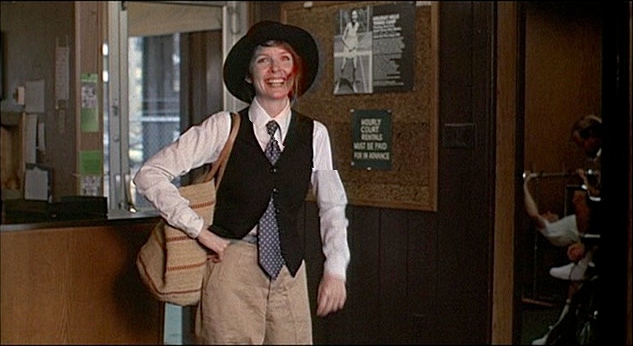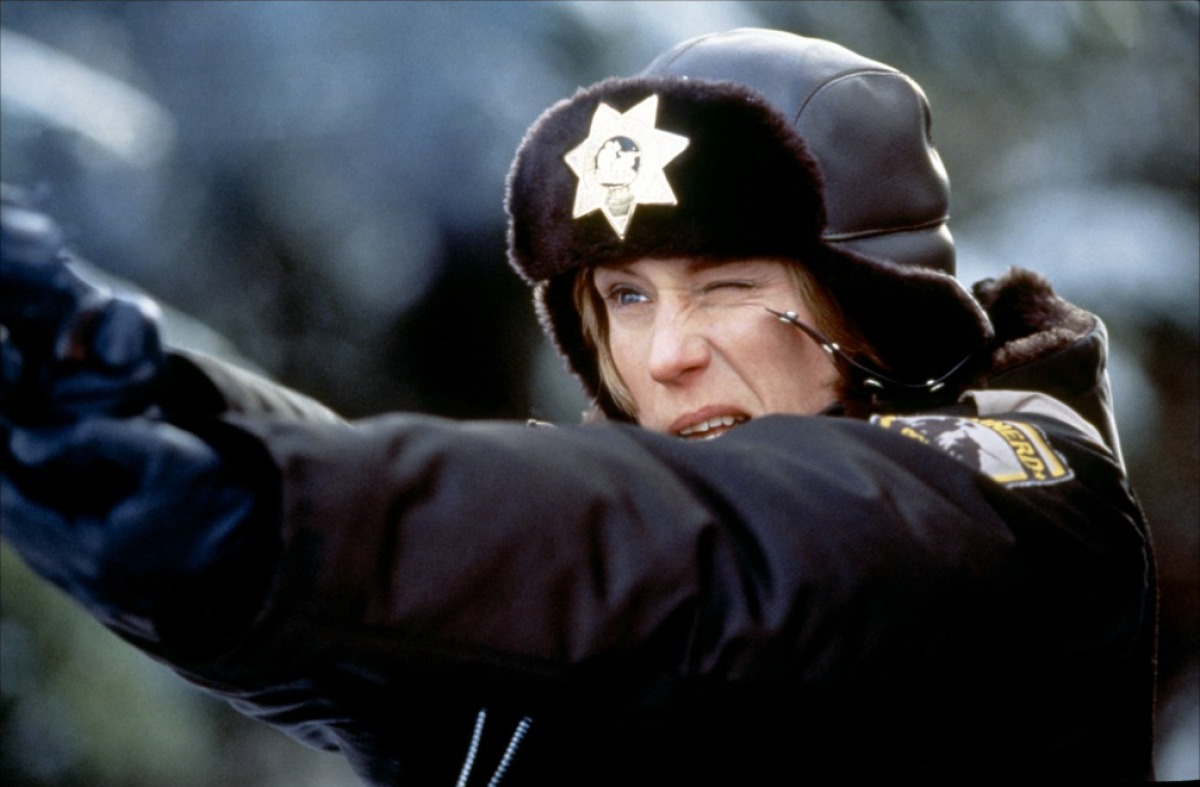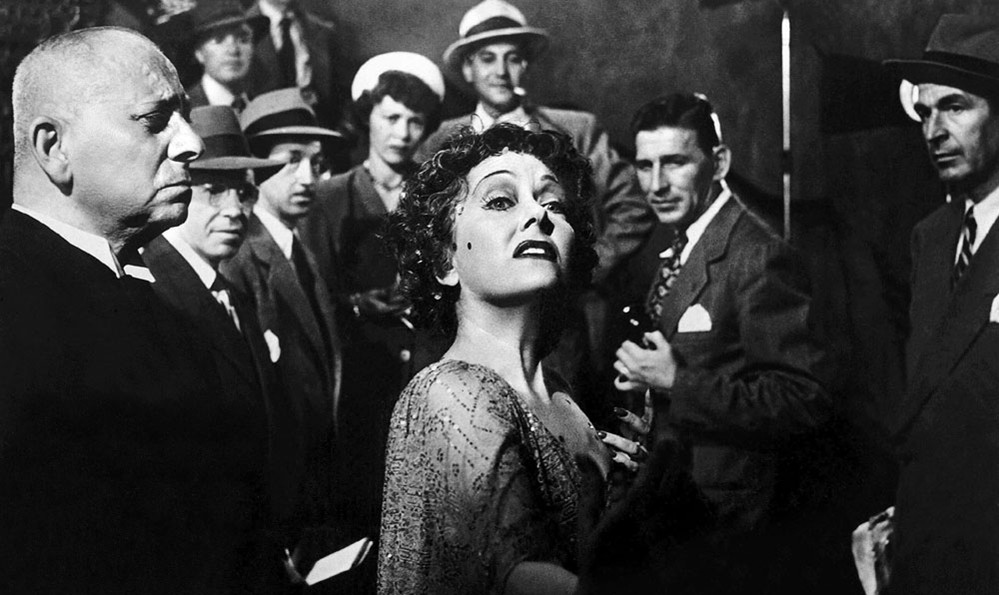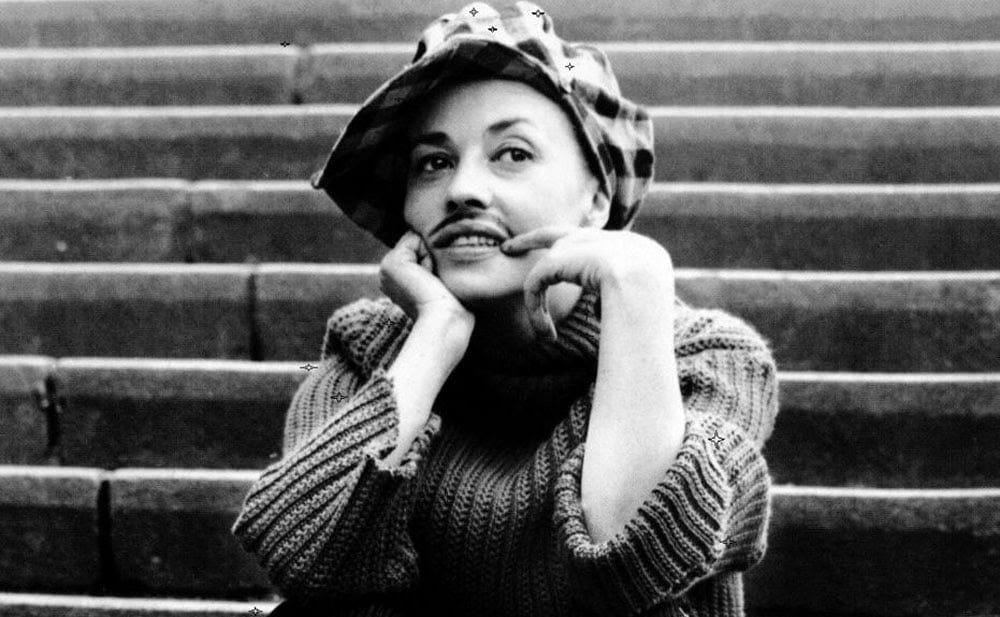5. Annie Hall – Annie Hall

A romantic comedy with a dorky, vulnerable leading lady is enough of a good reason to include Annie Hall from the film of the same name. She messes up in small ways and laughs it off with the loveable “la-dee-da” expression. Her frustrations with Alvy are identifiable, which continues to turn Annie into a three dimensional woman that you could swear you have met before.
This is also because of the pants-and-jacket style that actress Dianne Keaton brought to both Annie’s character and to the world (once Annie Hall caught on). When she sings in a club, it isn’t theatrical or confident, but soft and earnest. She is strong in the way she talks and lights up a room, but she is humble when it comes to the same room focusing in on her. We all know an Annie Hall; if you don’t, you may just be the Annie Hall of your life.
4. Marge Gunderson – Fargo

You may forget that it takes at least a half-hour for the eccentric police chief Marge Gunderson to appear in the already-reasonably-short Fargo (an hour and forty minutes). The film seems to be centered around her, despite the fact that it starts off with the boneheaded criminals that help Jerry Lundegaard kidnap his own wife.
Once you see the very-pregnant Marge go to work, you know she is right behind the elusive bandits from the get go. She may have one of the most entertaining accents in film history, and she may have some addicting expressions (“Prowler needs a jump!”), but she is way smarter than she leads on. When she starts to really crack the case (once she starts believing that honest-looking people are highly capable of lying convincingly), she becomes a force to be reckoned with.
Frances McDormand helped create a quirky icon in contemporary cinema, and you’d be lying if you said you didn’t want to follow her ways (whether it be by talking like her, or abiding by her ways).
3. Norma Desmond – Sunset Boulevard

We will never have a Norma Desmond in cinema ever again. Yes, we can have stars play golden-age icons, but Gloria Swanson playing Norma in Sunset Boulevard is a rarity. Firstly, Swanson lived the kind of life Sunset Boulevard depicted: silent movie stars that disappeared when cinema transitioned into talking pictures.
Secondly, Swanson put her everything into this role, because she knew it would be her chance to get into stardom again (just like Norma). Once this character was done, Swanson was only offered similar roles that she turned down in fear of being a one-trick pony. This was essentially her final big role, and what a juicy role it was.
Norma Desmond was high off of her own delusions enough to believe that she had a greater impact than she ever did (the joke’s on us: she ended up becoming an iconic character). You understand when she goes insane. She is the film industry’s highs and lows written into a living character, whose gaze is like a theatre’s projector that pours all over you. Norma was ready for her close up, but we weren’t ready to be that close up with inevitability.
2. Catherine – Jules et Jim

It is difficult to pick just one leading lady when it comes to French New Wave (or any offshoot from that style), but we ultimately went with Catherine from François Truffaut’s Jules et Jim (one of the strongest cinematic love triangles).
Jeanne Moreau turns the siren of two men’s affections into a mystifying figure for us as an audience. We can see through her ways more than the titular characters can, but we definitely see why they are hypnotized by her. She breaks the rules by being her own person, yet we are still saddened when she breaks the rules in ways we don’t approve (what a shock, right?).
When things turn for the worse, Catherine becomes a Marilyn-Monroe-like character. She was the object of affection that we came to realize was a person with troubles that weren’t dealt with in the best way. The film is named after the two men that fall for her, but it is definitely Catherine’s story.
1. Nurse Ratched – One Flew Over the Cuckoo’s Nest

Louise Fletcher’s career was never quite the same after her Academy Award win for One Flew Over the Cuckoo’s Nest. This is because Nurse Ratched’s scowl never left the memories of anyone that has seen the film.
That embodiment of scorn is a great enough reason to bring up Nurse Ratched, but I am going to argue that there is more to her than she is given credit for. I dare you to rewatch the film and not see that there are good intentions behind all of her efforts that almost never get brought up when her character is ever mentioned. Sure, she is bitter and forceful, but I see her tyrannical ways as means of helping the patients in her best ways (whether they are right or wrong) rather than her flaunting her love of power.
Don’t forget that you are viewing the film from the perspective of the patients. In the end, Nurse Ratched actually is deviously multi-layered to the point that you can discuss her motives in so many ways, despite her solidification of her stature as a class A villain.
Author Bio: Andreas Babiolakis has a Bachelor’s degree in Cinema Studies, and is currently undergoing his Master’s in Film Preservation. He is stationed in Toronto, where he devotes every year to saving money to celebrate his favourite holiday: TIFF. Catch him @andreasbabs.